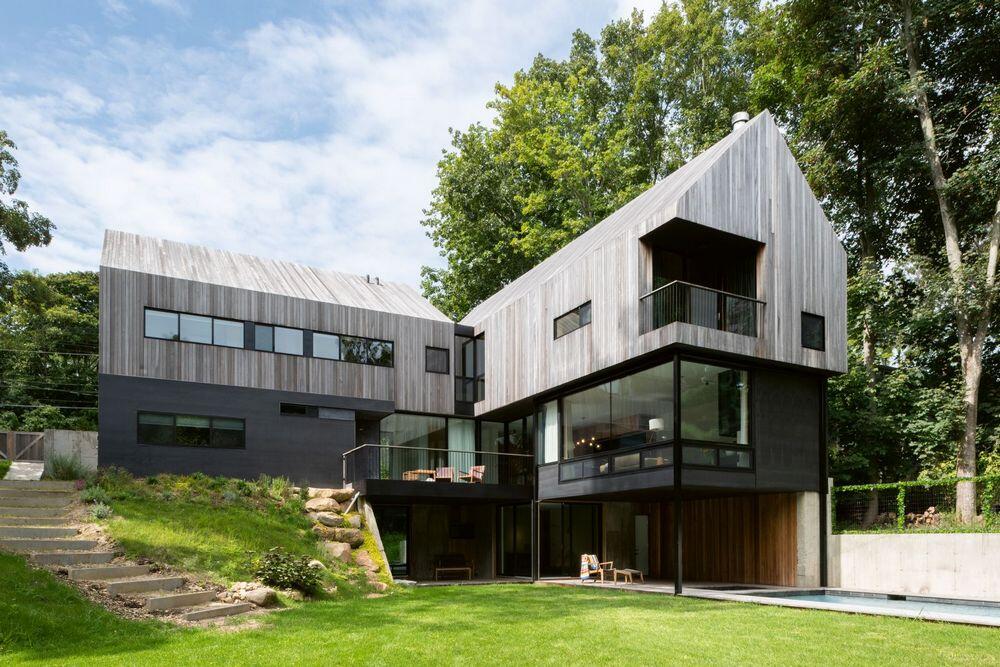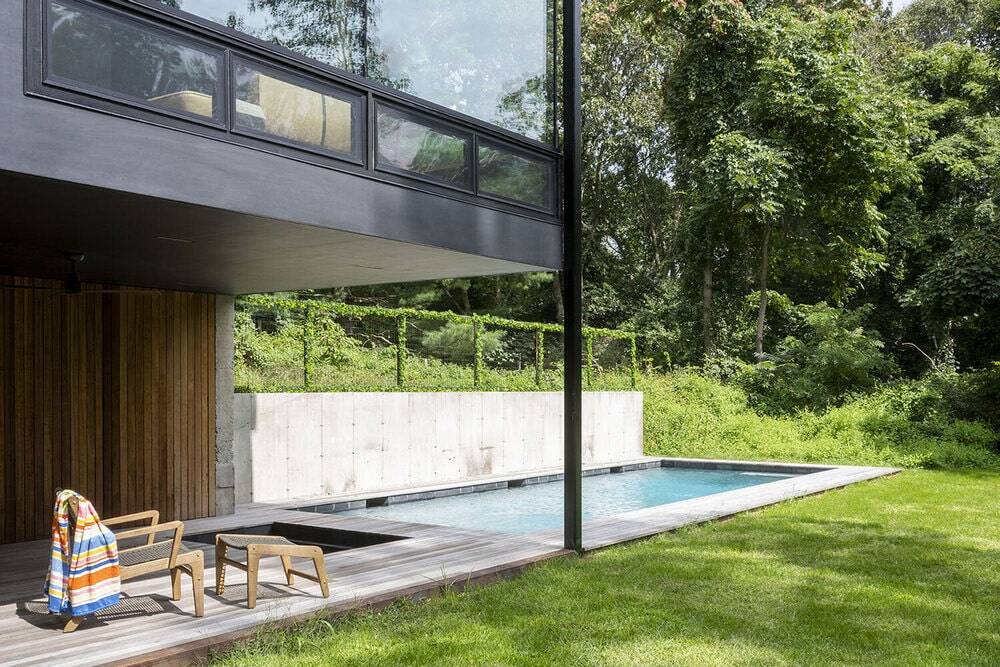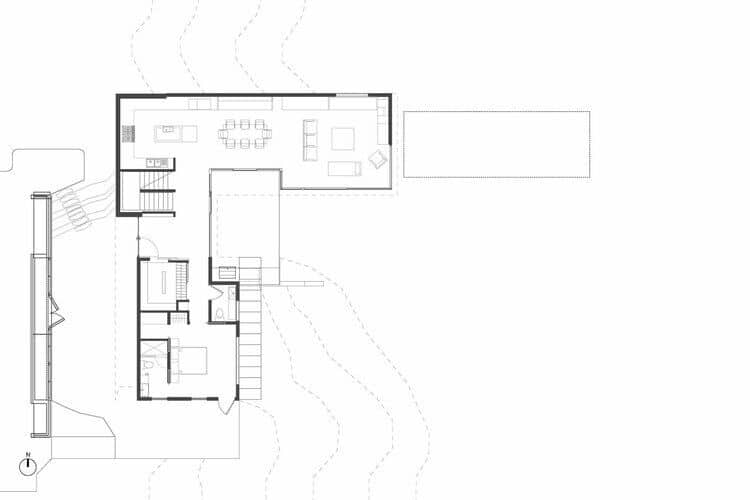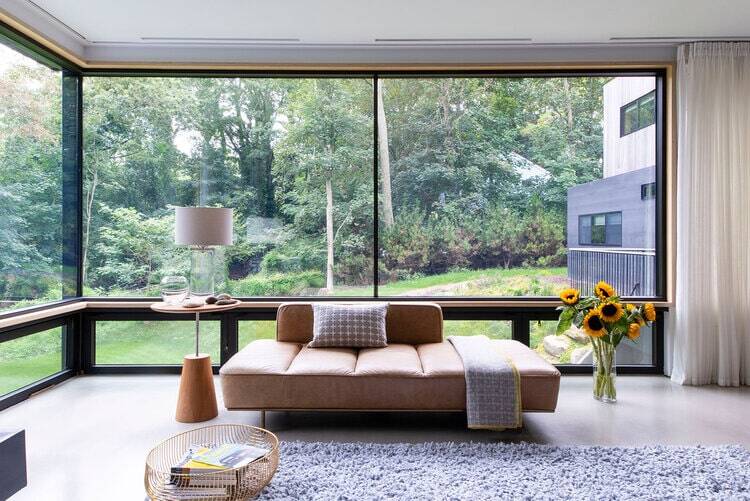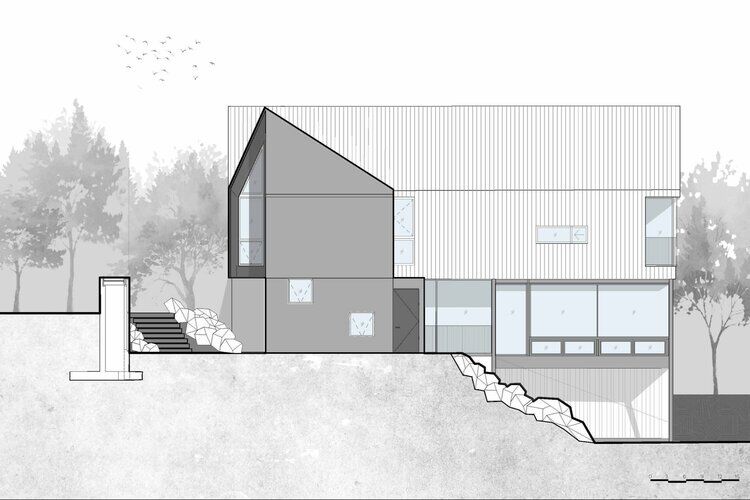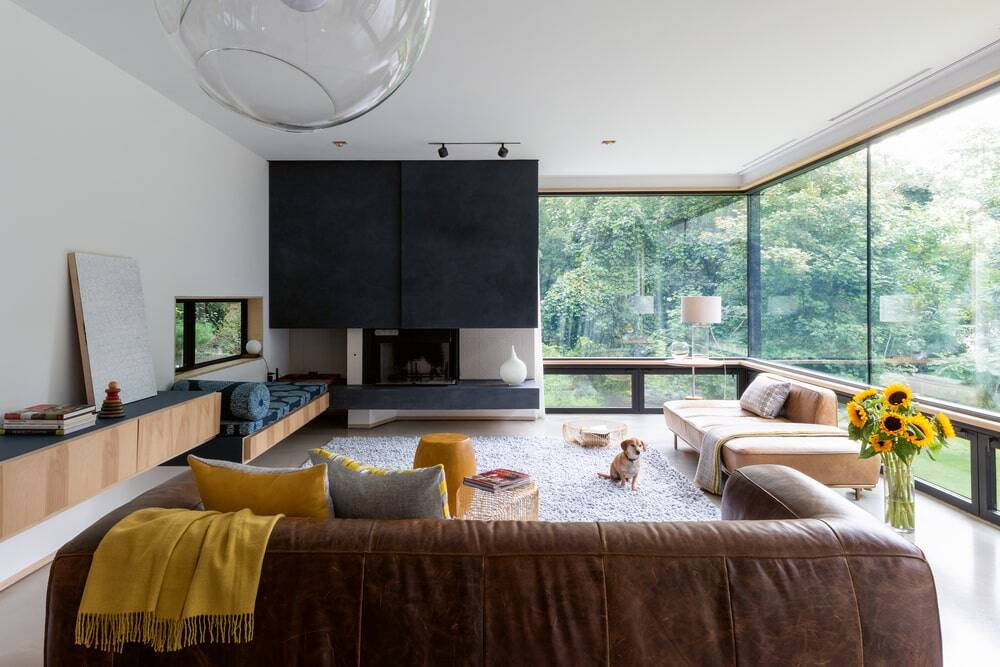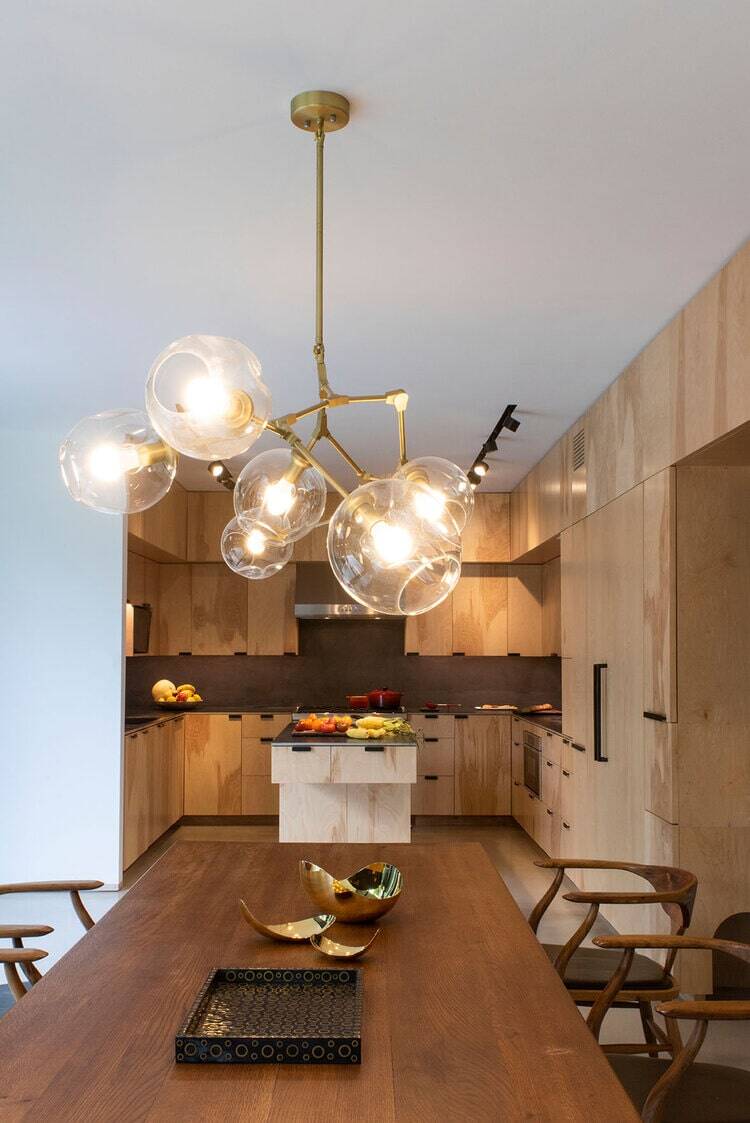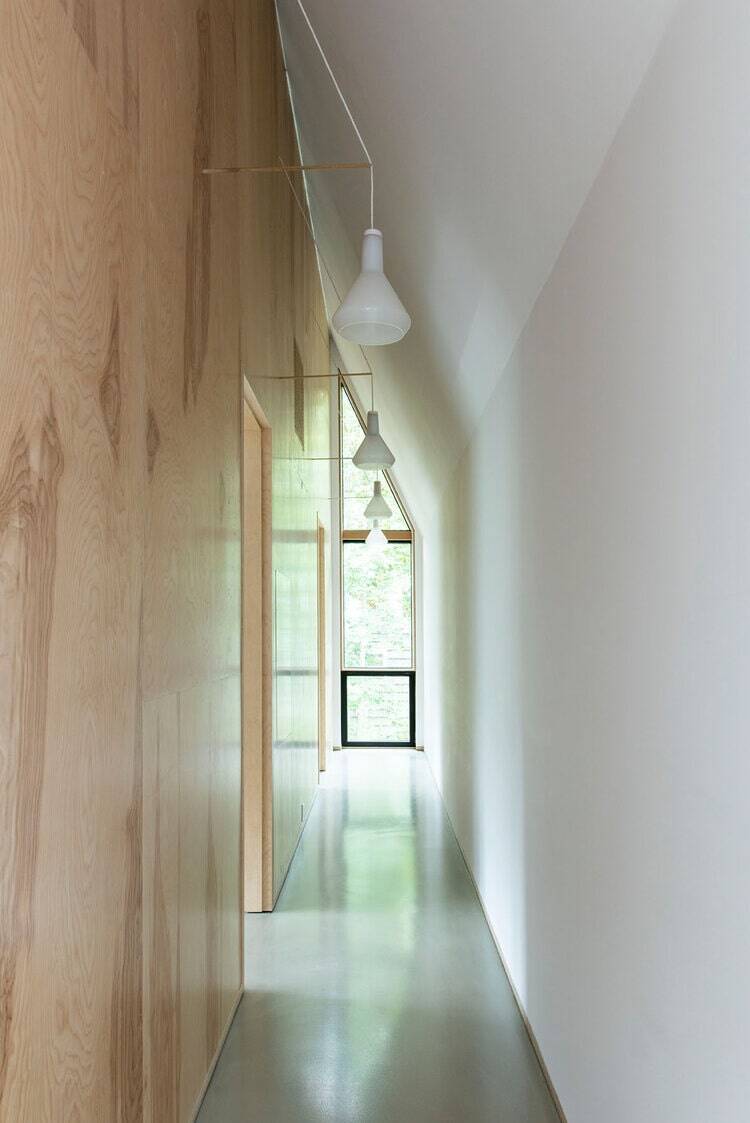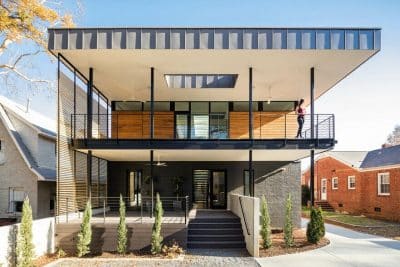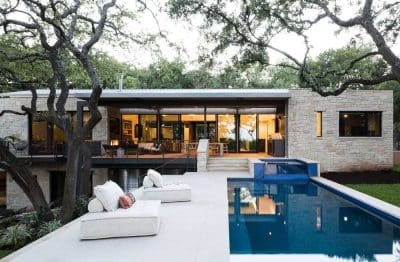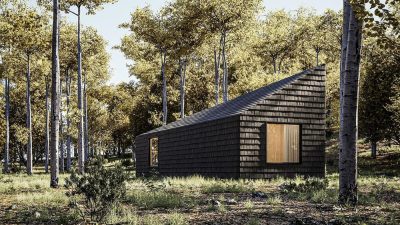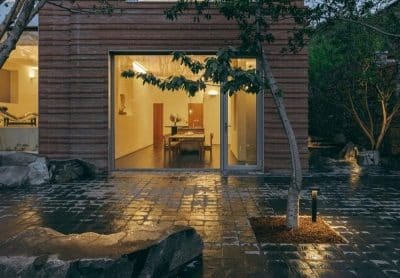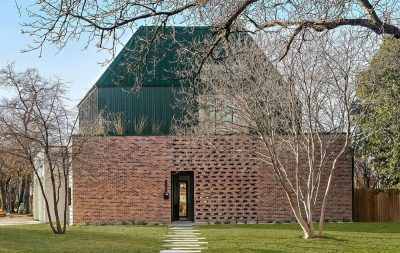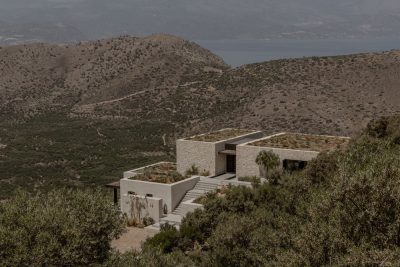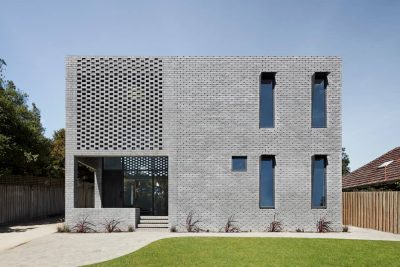Project: Pike & Pond House
Architecture: Oza Sabbeth Architects
Location: Sag Harbor, New York
Size: 3,000 Sq. Ft.
Contractor: Modern Green Home
Engineering – Craft Engineering Studio
Photo Credits: Kay Media
Text by Oza Sabbeth Architects
Pike & Pond House curates one’s experience by pivoting from the very public street to domestic spaces of the home. These spaces in turn are designed to take in the tranquility of the Pond beyond.
A busy Turnpike bookends this property at one end and a densely vegetated Pond on the other. An arriving vehicle cuts past a hedge of ten-foot-tall Junipers to park, unseen from the road, in a vehicular forecourt. Upon getting out of the vehicle, one encounters a retaining wall, which is a dense Bulwark of concrete and wood. Upon descending a few steps past this wall, the entry culminates in an intimate forecourt. One is now within the confines of the house really. The entrance foyer and mudroom provide a further means to shed the world outside. The act of entering now complete, the house begins opening up to the Pond beyond.
Siting
The site was an undesirable gully, a path for storm water to find its way from the road down to the Pond. The front yard and retaining wall are essential elements designed to guide storm water along the sides of the property. The retaining wall also allowed the main floor to be set six feet below the street level. This crucial siting decision allowed for a very private front with a backyard now made accessible down a landscaped flank to the rear. The swimming pool is enclosed by vegetation, and covered decks create multi-seasonal outdoor spaces on the lowest level.
Pike & Pond House Materials
For budgetary reasons we experimented with using sub straights as finish materials. The roof and the walls are designed as a rain screen assembly of exposed rubber (roofing EPDM) and mahogany decking material. The sub straight, EPDM in this case, is revealed in instances and slips behind the Mahogany shell where needed. The Flooring is a poured self-leveling cement, typically used as an underlayment for tile. For the millwork and wall panels, we used a Baltic Birch platform; this “platform” is the base upon which more expensive finish veneers get applied.

